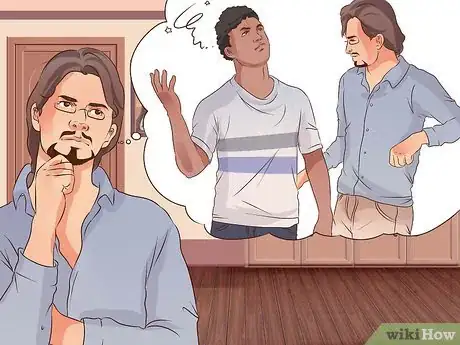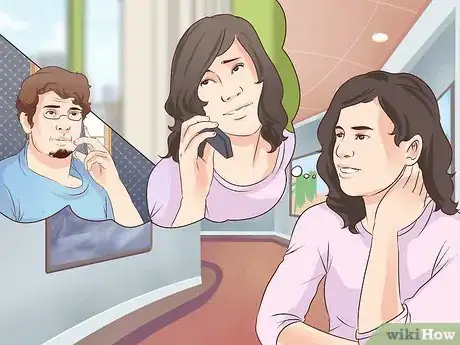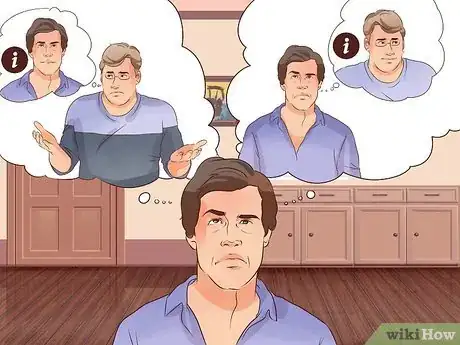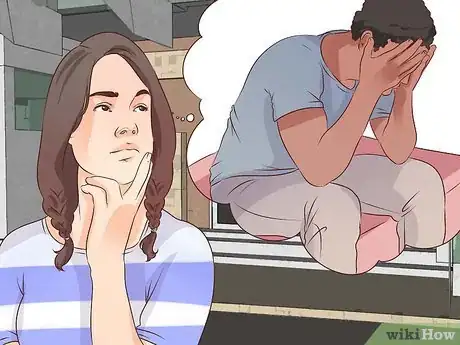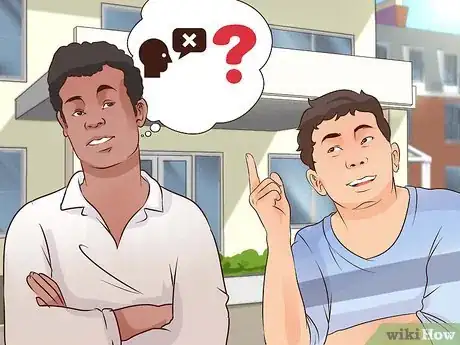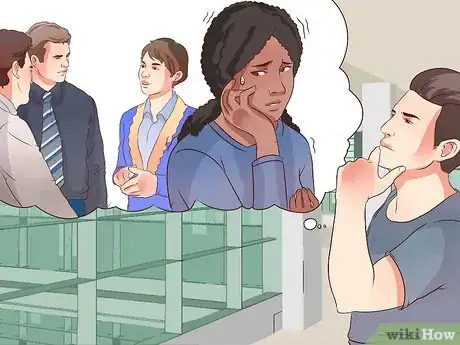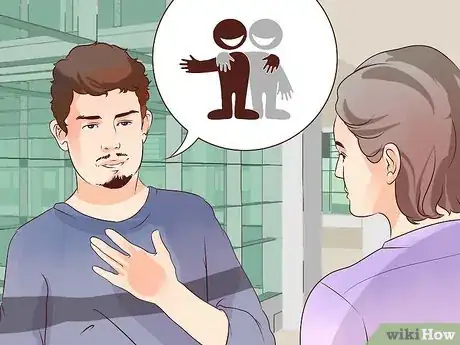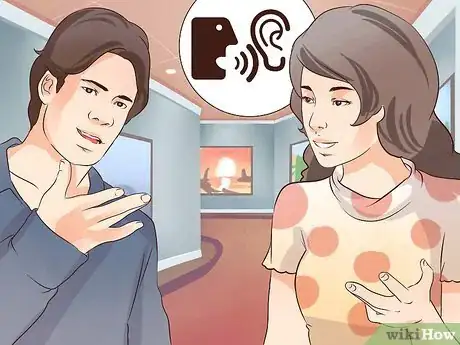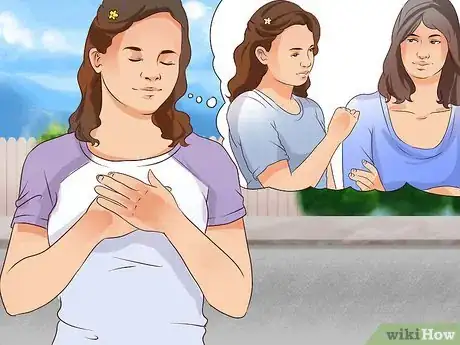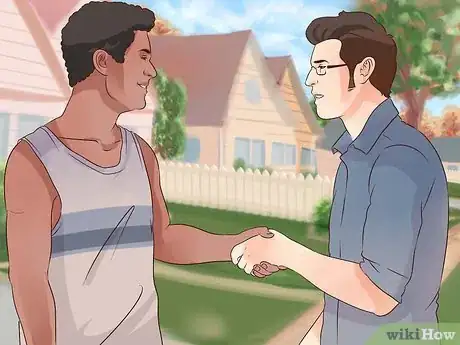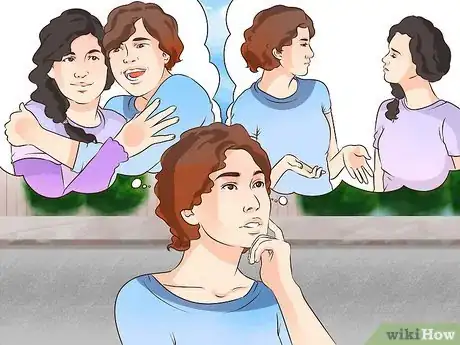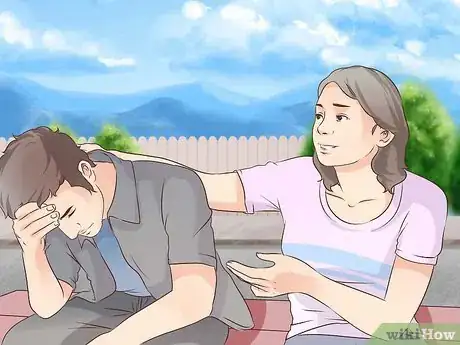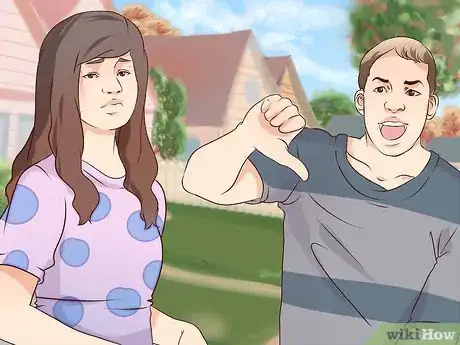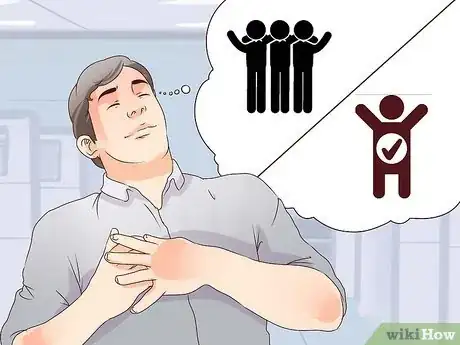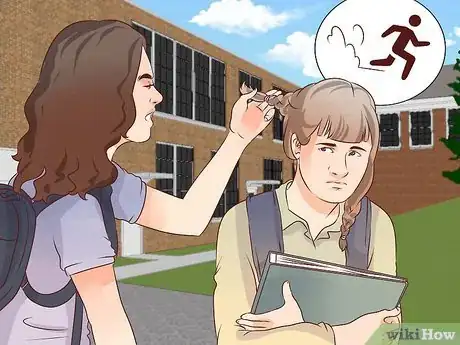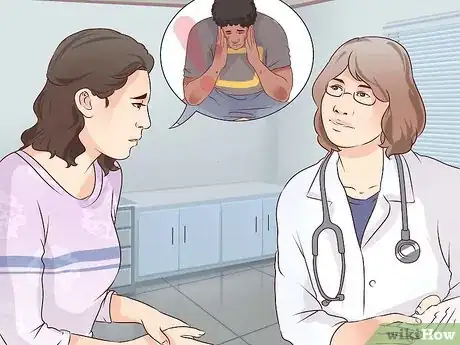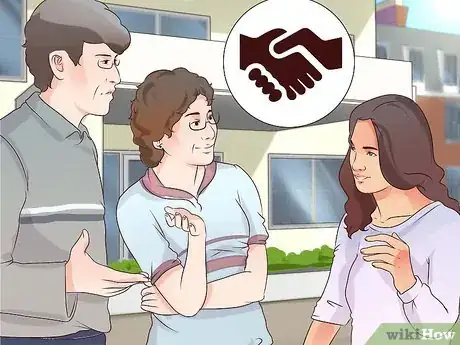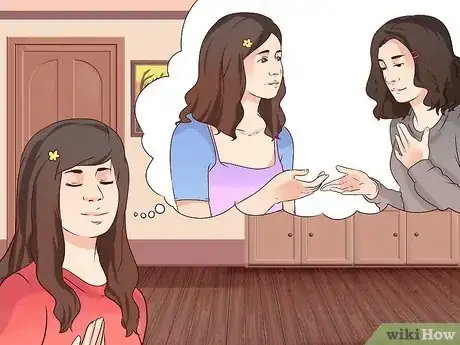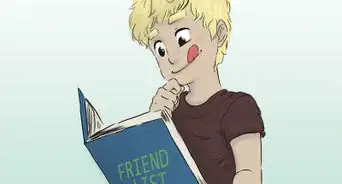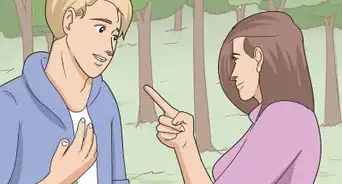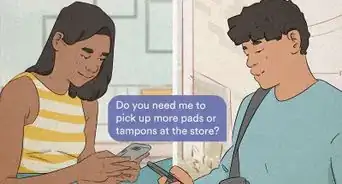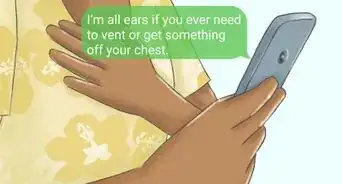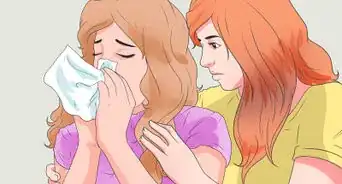This article was co-authored by Dr. Niall Geoghegan, PsyD. Dr. Niall Geoghegan is a Clinical Psychologist in Berkeley, CA. He specializes in Coherence Therapy and works with clients on anxiety, depression, anger management, and weight loss among other issues. He received his Doctorate in Clinical Psychology from the Wright Institute in Berkeley, CA.
There are 14 references cited in this article, which can be found at the bottom of the page.
This article has been viewed 87,938 times.
Not all friendships are equal. You may have friends that do not offer as much to you as you do to them. If the person is particularly unable to be there for you, you may have an emotionally unavailable friend. Try to identify if your friend is emotionally unavailable, how to communicate with the person, and what to do about that friendship.
Steps
-
1Identify traits of emotionally unavailable friends. Find actions or behaviors of your friend that may show him to be emotionally unavailable. Some signs of emotional unavailability may be that your friend:
- Does not maintain steady contact. Your friend may only occasionally keep in contact with you.
- Prefers casual friendship. If your friend keeps most discussions on the surface, he may want a more casual friendship than you do.
- Does not share personal information. Your friend may be unwilling to share or is secretive about themselves.
-
2Pay attention who is contacting whom more often. If you are always reaching out to them to talk or hang out, but they do not reciprocate, that may indicate a problem in your friendship.[1]
- If you are contacting your friend more often than they contact you, they may be emotionally unavailable or dealing with a stressful time.
- It is also possible that your friend is a bit more of a loner than you are, and doesn't feel the need to spend as much time with others. This isn't necessarily something you should take personally.
Advertisement -
3Notice if there’s a difference in how much he knows about you and how much you know about him. Friendships are about sharing in each other's lives. Do you always end up listening to your friend's problems, but when you have an issue, he's nowhere to be found? Or do you tend to overshare, burdening your friend with too much personal information?
- Think about how much you share with your friend. Try to make it pretty even.
-
4Look for consistent traits in your friend’s personality. Your friend may have some major personality traits that show her to be emotionally unavailable.
- Understand if your friend’s emotionally unavailability is temporary or permanent. She may be going through a difficult time or be depressed.
- Talk to her to see if anything’s going on. If not, she may be unavailable on a more permanent basis.[2]
- If your friend is prone to anger, is arrogant, or evasive when you talk to her, she may not be open to an emotionally supportive relationship.[3]
EXPERT TIPDr. Niall Geoghegan is a Clinical Psychologist in Berkeley, CA. He specializes in Coherence Therapy and works with clients on anxiety, depression, anger management, and weight loss among other issues. He received his Doctorate in Clinical Psychology from the Wright Institute in Berkeley, CA.Clinical Psychologist
 Dr. Niall Geoghegan, PsyD
Dr. Niall Geoghegan, PsyD
Clinical PsychologistAsk whether you need your friends to be equally supportive. Niall Geoghegan, a clinical psychologist, says: “Some people prefer to be the one who gives a lot of support, which makes an imbalance a non-issue. If this isn’t the case, ask whether you need someone who is more emotionally available and whether the friendship can last forever.”
-
5Realize if you’re being lied to or deceived. Emotionally unavailable people may hide their true feelings or actions.[4]
- Don’t put up with someone lying to you. You deserve to have a fair and honest friendship.
- Know that emotionally unavailable people may be lying because they are scared of being too open or sharing too much.
-
6Look at his past friendships and relationships. Your friend may have other friends or a significant other. These relationships tell you if your friend is emotionally unavailable to anyone else.[5]
- Look at your friend’s closest friends. If he does not have a many close friends, this may tell you something about his ability to connect with others.
- Know your friend’s significant other or past romantic relationships. Emotionally unavailable people may have formed only basic bonds with others.
- Consider whether he has had few romantic relationships or if those relationships ended poorly.
- See how your friend thinks about or acts towards himself. He may be arrogant or evasive, but this may hide self-esteem problems.[6]
Communicating Expectations
-
1Make expectations clear. Tell your friend what you want out of your friendship. Be assertive (not aggressive), meaning you clearly and respectfully state your wants and needs while accepting that your friend may have different wants and needs. Speak simply an honestly.
- Try to communicate directly with your friend about problems in your friendship. Be clear and direct when talking to her.
- Don’t assume she knows what you’re thinking. She may not even realize there is a problem.
- Talk to your friend about your needs. She may not realize she has not been a good friend to you.[7]
-
2Listen to his response. Allow your friend to be open and honest about how he feels. Listen actively to what he is saying — don't think about your defense or response while he is talking, take the time to hear what he is communicating. Encourage him with body language that indicates you are listening — nod when he makes a point and don't study your nails look at your phone, which may make it appear as though you aren't paying attention.
- If he is defensive or evasive, this may mean he is not ready for the same type of friendship that you want.
-
3Accept where your friend is with the friendship. Your friend may be psychologically healthy, but has decided over time that she would prefer a more casual friendship with you than you would like with her. Remember that not all people are the same, and it's okay if someone doesn't want to be close friends with you — it doesn't mean there is anything wrong with you, or with her.
- Do not give too much to someone in order to get something back. This can cause you to become resentful.
- Adjust your expectations. Just because your friendship is different than what you would like does not mean you cannot be friends at all.
-
4Hold your friend accountable. If you’ve discussed relating to one another in a different way, make sure to do so.
- Keep up your end of the friendship and make sure your friend does too.
- Let him reach out to you. Some friends may take longer than others to adjust to a more open relationship.
- Don’t smother him with your expectations, but give him space to come to you.
- Don’t be resentful if he doesn't contact you immediately. It’s important to be open and friendly regardless. You may scare him off otherwise.
-
5Be realistic about expectations. Your friendship may not be what you want it to be.
- Know that not every friend is going to be a lifelong or best friend.
- Make plans with other friends. Don’t put your life on hold for your emotionally unavailable friend. Go and have fun with other people in your life.[8]
- Enjoy the time you have with your friend. Even if she cannot offer the same type of friendship, try to have fun when you are around each other.
- Check with your friend, but don’t obsess over her. Make sure you are there for your friend if she needs it.
- Don't spend too much time thinking about your friendship if it upsets you unnecessarily.
Knowing Your Limits
-
1Help your friend out. Your friend may be suffering, so be a good friend and find out why. See if you can help him.
-
2Treat your friend with respect. Know that her situation is unique and not strange. Reserve judgement and act fairly.
- Do not judge. It's okay for her to go through a difficult time.[11]
- Encourage your friend to seek help from a doctor or a mental health professional. She can get help or treatment that can be beneficial to her well-being.
-
3Think about your own health. Make sure to take care yourself first and foremost.
- Don't be overwhelmed by your friend’s needs.
- Set limits or boundaries on what you'll tolerate and the time you spend with them if your friend is mistreating you.[12]
- Recognize the signs of an abusive friendship. An emotionally abusive relationship may involve name-calling, constant criticism, threatening you, making you feel guilty or as though you are doing something wrong, embarrassing you on purpose.
-
4Leave immediately if your friend becomes physically or emotionally abusive. Know that any situation can become more dangerous
- Don't stick around if you feel unsafe.
- Find someone who can help you or your friend.
-
5Get help if you find your friend talking about committing suicide. Take any threat seriously. Make sure you are cautious when dealing with potentially suicidal people.
-
6Find support for yourself. It's important to take care of yourself as well. Don't let yourself be overwhelmed by your friendship.
- Join a support group, see a therapist, and do good things for yourself.
- Talk to your other friends. They may be able to help you through this difficult time.
-
7Remember the good times with your friend. Even if you can't be friends anymore, don't let the end of your friendship dictate how you think of them forever.
- Know that those memories are still important and valuable, even if your friendship is over.
- Don't cut all ties. Maybe your friend will grow and change. Keep an open mind about being their friend again in the future.
References
- ↑ http://www.mindbodygreen.com/0-22814/5-signs-the-person-youre-dating-is-emotionally-unavailable.html
- ↑ http://www.webmd.com/depression/guide/detecting-depression
- ↑ http://www.whatiscodependency.com/10-tips-to-spot-emotionally-unavailable-emotional-unavailability/
- ↑ http://www.elephantjournal.com/2015/07/are-you-with-an-emotionally-unavailable-person/
- ↑ http://www.bustle.com/articles/138338-6-signs-you-may-be-emotionally-unavailable
- ↑ https://www.eharmony.com/dating-advice/dating/emotionally-unavailable-women/#.VuyjOxIrLp4
- ↑ http://sfhelp.org/cx/apps/unavailable.htm
- ↑ http://www.succeedsocially.com/plans
- ↑ http://www.lifeoptimizer.org/2008/08/27/become-true-friend/
- ↑ http://www.skillsyouneed.com/ips/listening-skills.html
- ↑ http://www.mayoclinic.org/diseases-conditions/mental-illness/in-depth/mental-health/art-20046477
- ↑ http://articles.chicagotribune.com/2011-10-18/features/ct-tribu-weigel-friend-abuse-20111018_1_toxic-friend-websites-person
- ↑ https://www.nimh.nih.gov/health/topics/suicide-prevention/index.shtml
- ↑ http://www.suicidepreventionlifeline.org/
